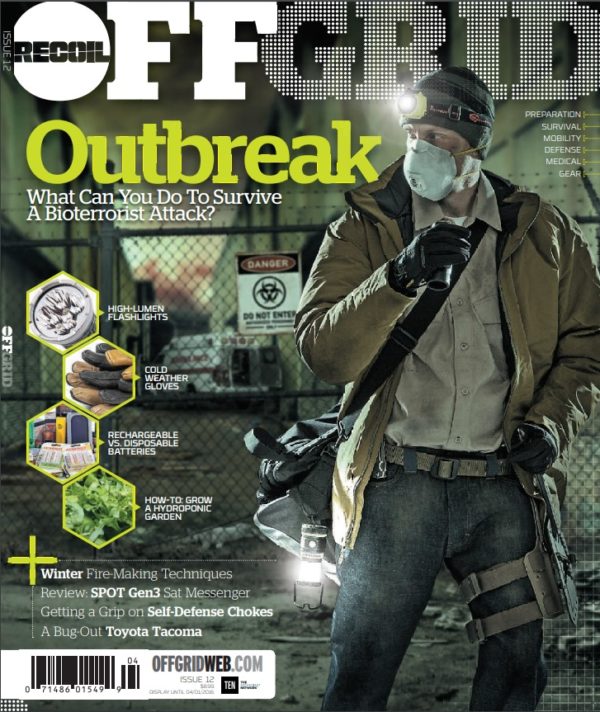Offgrid Survival Book Review: “The Unthinkable: Who Survives When Disaster Strikes and Why”
The Premise: How are you most likely to die? In The Unthinkable, Amanda Ripley asks this question and begins a journey to explore the mindset of humanity to understand what sets apart one’s survival instinct from another’s. If we’ve ever asked the question, “What would I do in a disaster,” then Ripley’s book is at the forefront of answering that question for her readers. Ripley examines the various levels of human behavior through multiple case studies and eyewitness accounts, leading readers to draw conclusions about themselves. The Unthinkable asks us the hard question: “Will my decision in a disaster lead to survival or death?” More importantly, Ripley asks why we exhibit certain behaviors, and if we can change them to make us more resilient during a disaster.
Ripley investigates a range of disasters, both natural and manmade, asking us if we’re endeared with the mental traits of a survivor. Within the over-arching question rises the most poignant thought of who has the highest potential of dying during a disaster: Why?
The Unthinkable introduces the “survival arc” of actions and reactions when experiencing disaster. Ripley identifies three phases within the survival arc: denial that anything is wrong, deliberation on options considered, and decisions on what we should or should not act upon.

Each chapter of the book focuses on a specific disaster that envelops a particular emotion and action during calamity, and explores how the two are interconnected. There’s a lot of talk about our instinctual reactions in the face of danger. Why do we perform acts of heroism? How do crowds of people suddenly turn deadly? What physical reactions do our bodies go through when faced with unimaginable fear? How do we keep from freezing and move past denial? The Unthinkable definitely focuses on mental survival during disasters, but there’s a fair share of practical advice intertwined through the reading to bring it home for Ripley’s readers, including a knowledge base on specific disasters readers could personally face, and mentally rehearse for what they would do.
The Unthinkable, while exploring the dark side of disasters, is intertwined with a sense of hope. The tragic stories of disaster survivors are sobering, yet heroic as they reflect the human spirt to save oneself as well as the lives of others. Stories range from the World Trade Center attacks to the Virginia Tech shooting. Ripley weaves empirical evidence throughout her writing to display why some of us are more prone to die in a disaster. These tragic stories, however, contain a silver lining, which is that humanity rises to the occasion of doing good more than we think, even during times of disaster.
In an overwhelming library of disaster novels and how-to books, Ripley should be commended for her work. The Unthinkable is a well-researched and optimistic reflection about disasters and how people navigate them. We often dissociate our environment with our emotion, believing that disaster may not happen to us. It’s this premise, however, that Ripley excels at smashing, telling us not only why we’re prone to such thinking, but how to break it as well. She mixes her research with the right balance of judgment and personal commentary, making the reading relatable to all her readers, not just those involved in disaster preparedness. She expertly reaches her audience with the use of individual stories, rather than the sole use of aggregated data, making her work understandable and easily acted upon when advice is given.
This book should be on everyone’s personal bookshelf. It’s filled with fascinating tales of how people react during disasters and gives us practical advice on how to prepare ourselves mentally before being involved in one. By understanding the most common reasons people die in disasters, we equip ourselves with practical information that could save us during such times. If we’re ever in the moment that we think we’d be oblivious to the calamity around us, Ripley is there to warn us that we all are susceptible to human response. At its core, The Unthinkable is a book that believes in humanity and the resilience of people, especially as they come to grips with their mental survivability during a disaster. It offers hope in times of despair, especially as it teaches us that we can overcome the biggest obstacle to surviving disaster: ourselves.
Book & Author
The Unthinkable: Who Survives When Disaster Strikes—and Why
By Amanda Ripley
Publisher
Harmony; Illustrated edition (2009)
MSRP
$16 paperback (Amazon)
URL
www.amazon.com
Pages
288
Rating
>Thrive
Survive
Die
 STAY SAFE: Download a Free copy of the OFFGRID Outbreak Issue
STAY SAFE: Download a Free copy of the OFFGRID Outbreak Issue
No Comments